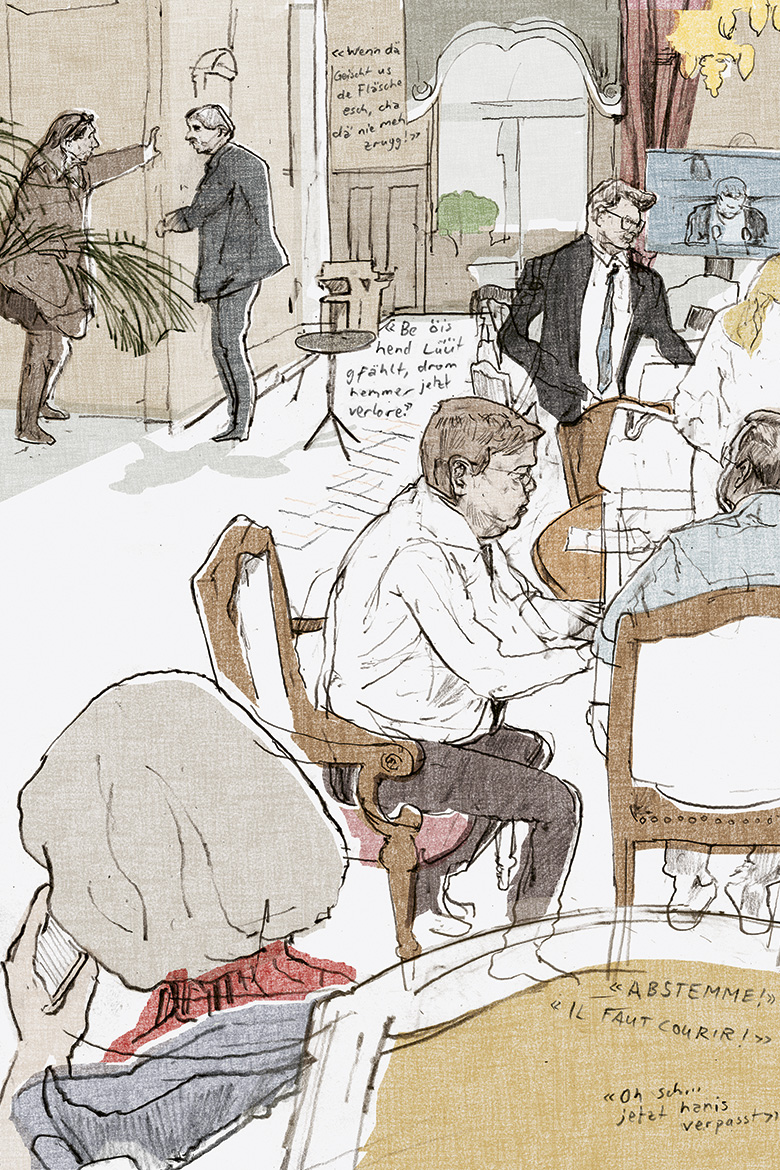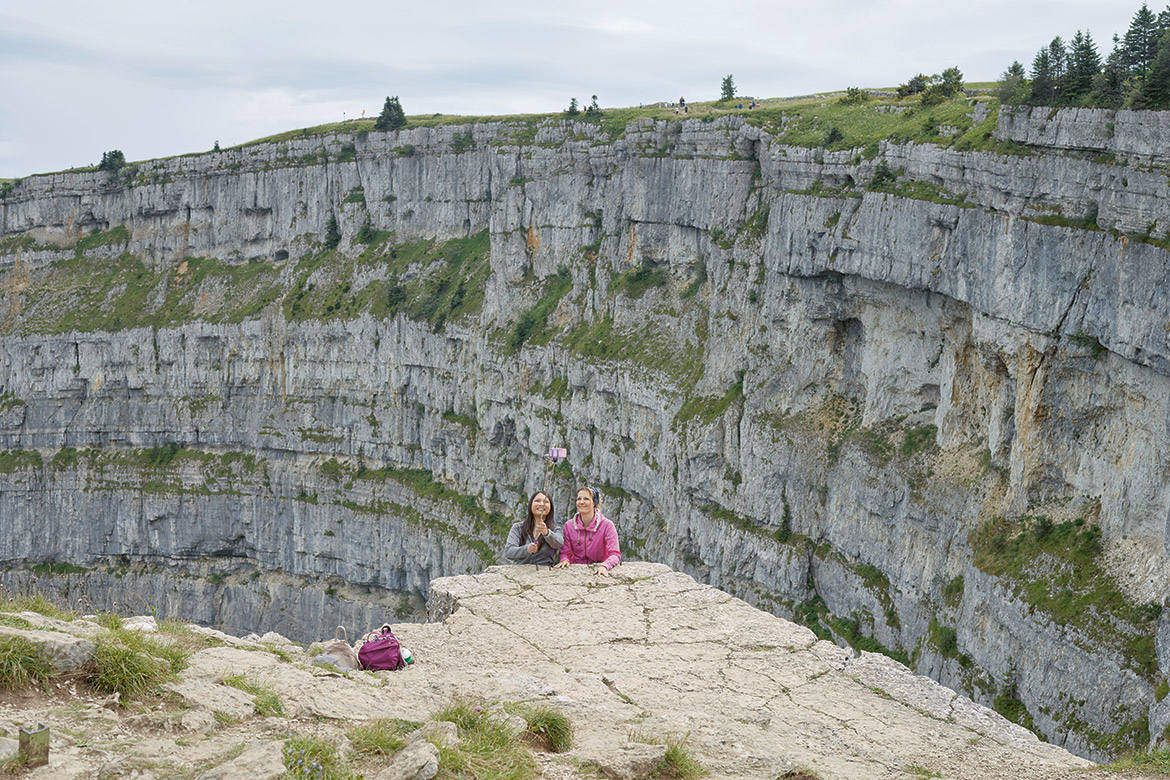Feature: An evidence-based parliament
Editorial: persistence in the political jungle
Members of parliament prefer to adhere to their own opinions instead of being open to new ideas. This is one reason why research findings have a tough time getting accepted in the Federal Parliament, believes Judith Hochstrasser, joint Editor-in-Chief of Horizons.

The lobby of the Federal Parliament sees a lot of discussions, phone calls and gesticulating – until someone shouts “Vote!”, at which everyone runs into the chamber. | Illustration: Christoph Fischer
In this issue of Horizons we are offering something extraordinary: the artist Christoph Fischer, who has illustrated our feature on science in the Federal Parliament, was this past autumn an exotic fixture in the lobby and press box of the parliamentary chambers. Neither the media officer of the Parliamentary Service nor her colleagues in those hallowed halls can remember ever having seen an artist there before. He was given a correspondingly warm welcome during the 2022 autumn session of parliament. This open attitude towards the new has helped to make the present issue of Horizons a very special one.
In the spaces where political decisions are made, there are clear rules about what journalists and photographers are allowed to do, and what not – and the same applies to artists. For example, they are allowed to observe the proceedings from the press box and they are allowed in the lobby, but they cannot go into the chambers themselves or visit the meeting rooms. This is for the security of everyone, and ensures the smooth running of the Federal Parliament.
There is less order, however, in how the results of scientific research make their way into the heads, arguments and decisions of our political representatives. The processes involved are opaque. When we began to investigate this topic, we discovered something astonishing. It took a lot of persistence to get our political representatives to tell us if and when facts derived from scientific research have made them change their mind about anything. It’s as if they want to strike a delicate balance between giving the impression that they can be relied upon to uphold their opinions, while remaining open to the newest knowledge. And it’s not certain which is actually the more important to them. We have also made the rather sobering discovery that research findings enter the field of politics primarily through the diffuse channels of federal offices and state secretariats. By contrast, research hardly plays a role at all in the political and legal debates on new bills in parliament.
Our research has made it clear to us that scientists, too, have to be persistent if they want their findings to have a concrete impact on society. Our lions of science won’t get anywhere unless they roar!




